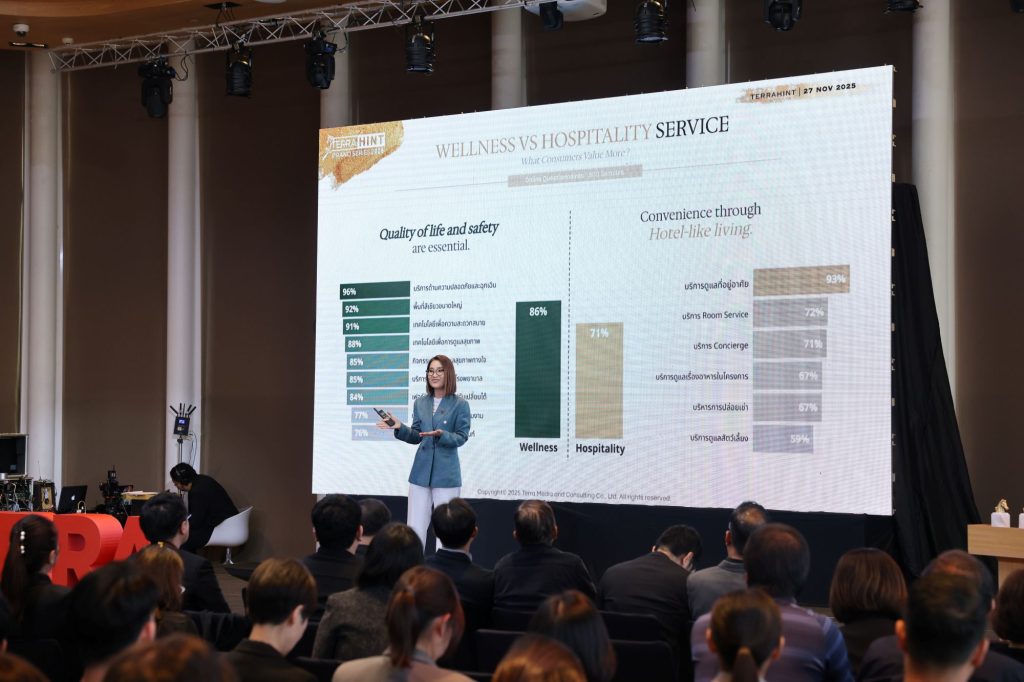NEWS & EVENTS

As the world embraces an era of flexible and borderless work, Thailand has emerged as a leader in attracting Digital Nomads, freelancers, and individuals seeking to integrate their professional lives with travel, commonly known as “Workation.” Proactive policies and enabling infrastructure, notably the “Workation Paradise” initiative and the introduction of the “Destination Thailand Visa (DTV),” are transforming the country’s tourism and economic landscape towards greater diversity and sustainability.
Thailand: Workation Paradise
Thailand has launched the “Workation Paradise Throughout Thailand Season 3” campaign, a pivotal component of the “Amazing Thailand Grand Tourism and Sports Year 2025” strategy. This campaign primarily aims to attract “quality travelers,” encompassing Digital Nomads, expatriates residing in Thailand, and freelancers, who can seamlessly work remotely while enjoying their travels.
A key objective of this initiative is to increase tourism revenue and distribute spending by encouraging longer stays and higher per-capita expenditure. Furthermore, it focuses on dispersing income to various regions across the country, supporting travel to secondary cities and lesser-known areas such as Koh Chang and Kanchanaburi, thereby ensuring that economic benefits permeate local communities more broadly. The promotion of the Workation trend is thus a crucial strategy that aligns with the evolving concept of work in the digital age
The Workation Paradise Season 3 campaign offers an impressive array of discounts and privileges from over 200 participating businesses nationwide. These encompass luxurious accommodations, including properties like Sri Panwa, Dusit Thani Laguna Phuket, and Hyatt Regency Hua Hin, alongside top-tier dining venues, co-working spaces, travel activities, and health and wellness services. Additionally, special promotions such as “100 Baht to Work and Travel” provide visitors with the opportunity to purchase premium travel vouchers for just 100 Baht, granting them exclusive discounts. The “Team Travel Workation – Powered by TAT” program further offers benefits and chances to win group travel packages.

The Tourism Authority of Thailand (TAT) has also partnered with Fastwork Technologies, a platform for freelancers, to promote the “work-from-anywhere” concept and effectively support income distribution to various regions. The Workation Paradise campaign is projected to generate approximately 210 million Baht in economic value. This forms part of the overall goal for the “Amazing Thailand Grand Tourism and Sports Year 2025,” which aims to attract 39 million international visitors and generate over 3 trillion Baht in tourism revenue by 2025
Destination Thailand Visa (DTV): A New Visa for Workation Paradise
To robustly support the “Workation Paradise” vision, the Thai government introduced the “Destination Thailand Visa (DTV)” in July 2024, a visa specifically designed for remote workers and individuals seeking long-term stays in Thailand.
The DTV is a multiple-entry visa with a validity period of five years. Visa holders are permitted to stay in Thailand for up to 180 days per entry, with the option to extend their stay for an additional 180 days at the Immigration Bureau. The visa fee is 10,000 Baht, approximately 300 US dollars.
Applicants for the DTV must be at least 20 years old and provide financial evidence demonstrating no less than 500,000 Baht (approximately 13,600 – 15,000 US dollars) in their bank account. This visa is suitable for Digital Nomads, Remote Workers, Freelancers, and Foreign Talents working for companies or clients outside Thailand. It also extends to individuals seeking long-term residency to participate in activities related to Thailand’s Soft Power, such as Muay Thai, Thai culinary training, education, sports, medical treatment, arts, and music. Significantly, DTV holders can include their spouses and children under 20 years old in their visa application.

How DTV Impacts Digital Nomad Attraction
The DTV has been meticulously designed to overcome the limitations of previous visa categories, thereby offering a significant competitive advantage in attracting Digital Nomads to Thailand.
Competitive Visa Advantage
Firstly, the DTV provides a clear competitive edge in the visa landscape. Compared to the traditional tourist visa, which typically allowed stays of only up to 60 days per entry, proving insufficient for long-term residency, the DTV offers a much longer stay of up to 180 days per entry, with the option for extension. This significantly better accommodates the flexible work and travel lifestyle of Digital Nomads. Furthermore, the DTV is more accessible than the Long-Term Resident (LTR) Visa, which imposes much higher income and asset requirements (e.g., a minimum annual income of 80,000 US dollars). Crucially, DTV holders are permitted to work remotely for foreign companies or clients without requiring a Thai work permit, which substantially reduces legal complexities.
Clear Quantitative Impact
Secondly, the quantitative impact of the DTV is tangibly evident. Since its launch on July 15, 2024, the DTV program has garnered over 35,000 applications within its first year. This aligns with the objective of attracting more Digital Nomads to the country. Notably, Bangkok has been ranked as the world’s top Digital Nomad destination for 2025 by HotelWithTub. The city achieved an impressive score of 91 out of 100 points and a satisfaction rating of 4.55 out of 5. Nakhon Ratchasima (Korat) also secured the fifth position in the same global ranking. The Tourism Authority of Thailand (TAT) estimates that Thailand is currently home to approximately 14 to 16 million Digital Nomads and remote workers , underscoring the significant size of this potential market.
Community and Economic Transformation
Lastly, the DTV has also led to significant community and economic transformations. This visa has played a crucial role in the post-pandemic economic and tourism recovery of Thailand, particularly in regions that might otherwise experience seasonal lulls. By attracting individuals with foreign-sourced income, the visa stimulates local spending, thereby boosting the overall economy. Furthermore, the DTV has facilitated the evolution of traditional tourist-centric areas into vibrant hubs for remote work, characterized by the emergence of co-working spaces, wellness centers, and local businesses catering to a long-term international resident community. A clear example is Koh Phangan, which has successfully transitioned its image from a party destination to a haven for wellness professionals and freelancers.
However, despite its successes, DTV holders may still face certain limitations. These include restrictions on opening domestic bank accounts, a measure intended to combat financial crime and unauthorized employment. Additionally, there are tax implications for foreign-sourced income remitted to Thailand if the stay exceeds 180 days. Furthermore, DTV holders are not permitted to engage in businesses related to their offshore employers within Thailand.




